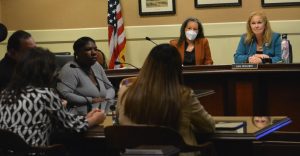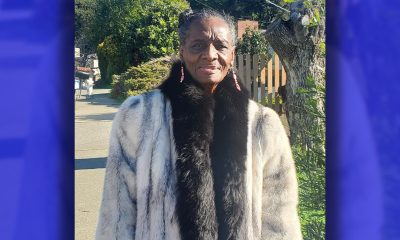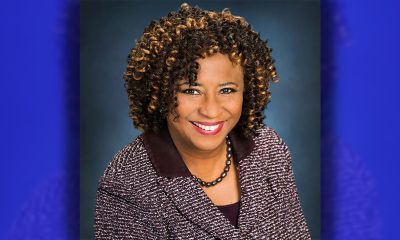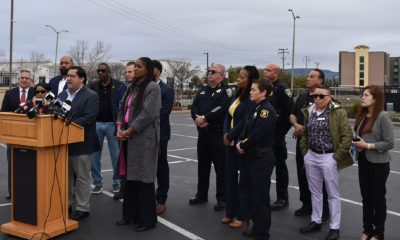Bay Area
Oakland Moves to Prohibit Landlords from Considering Criminal Histories in Rental Housing
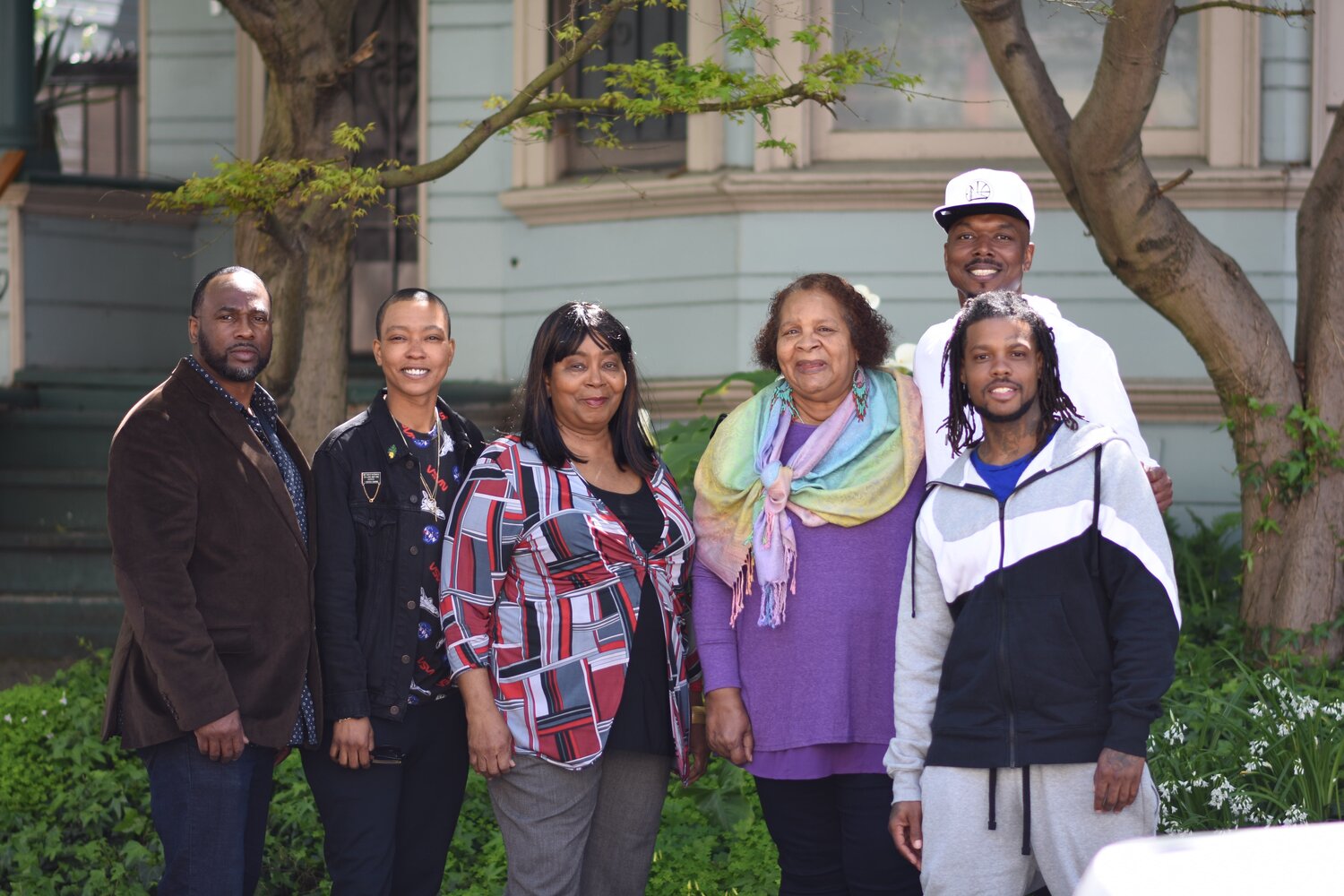
Members of the City Council’s Community and Economic Development (CED) Committee this week unanimously adopted a proposed Fair Chance Housing Ordinance that would ban landlords from considering criminal histories in screening applicants for rental housing.
The ordinance is designed to break down a major barrier, beyond high rental costs, that keeps many formerly incarcerated people from finding a place to live for themselves and their families, leading many of them to end up homeless after leaving prison.
A recent survey found that 73% of unhoused residents in Oakland encampments were formerly incarcerated, according to a city report on the proposed ordinance.
The proposal was originally brought to the city by the Alameda County Fair Chance to Housing Coalition, which includes All of Us or None, Legal Services for Prisoners with Children and Just Cities. The coalition worked closely with City Attorney Barbara Parker’s office, which drafted the ordinance and co-sponsors District 2 Councilmember Nikki Fortunato Bas with Larry Reid and Dan Kalb. Also supporting the proposal at CED were Councilmembers Noel Gallo and Loren Taylor.
“The purpose of the legislation is to increase access to housing for formerly incarcerated persons and their family members, to decrease the homelessness and family separation that result from policies that exclude the formerly incarcerated from housing and to provide formerly incarcerated people with a fair opportunity to reclaim their lives and reintegrate into the community,” said Deputy City Attorney Laura Lane.
With a few exceptions, the law would prevent landlords from asking about or requiring the disclosure of an applicant’s criminal history, from advertising or using a policy that excludes people with criminal history or taking any adverse action against a tenant or applicant, based on their criminal history, such as evicting a tenant or charging someone higher rent or security deposit, Lane said.
Fines for a violation could cost up to $1,000 per incident. A violation would be considered an infraction, but knowingly or willingly violating the ordinance would be a misdemeanor. The ordinance provides for education and outreach so that members of the community would know their rights and landlords would know their responsibilities.
“We believe this ordinance is a valuable and immediate solution to the housing crisis,” said John Jones III, who is a staff member of Just Cities and campaign director of the Fair Chance to Housing Coalition.
“This impact does not lie solely with the individual who has a criminal record,” he said. “These barriers are extended to family members, to loved ones, to children.”
People coming out of prison face barriers in all types of housing: publicly subsidized nonprofit housing, the Public Housing Authority and Single Room Occupancy (SRO) residences, said Margaretta Lin, executive director of Just Cities.
In its research, Just Cities “discovered that the criminal background databases that landlords rely on are extremely flawed,” she said. “We also know that there are…extreme racial disparities…in every step of the criminal justice system.
Noting that the city is strapped for resources, Lin said that Just Cities is willing to provide a pro bono annual evaluation of the implementation of the ordinance for the first two years.
Among the other cities that are already acting on this issue are Portland, Seattle, Richmond and Berkeley, she said.
Succatti Shaw, a member staff of All of Us or None and Legal Services for Prisoners with Children, spent five years in prison. She said that because of the way her charges were written, making it seem like she manufactured meth, she is ineligible for affordable housing.
“I have a lifetime ban against me. I served my time, but now I’m serving time because I’m not seen as a human being,” she said. “I’m thanking you all for a chance to house my children (and) myself. We thank you for being stand up men and women.”
Taqwaa Bonner of All of Us or None said, “I am one among thousands of men and women who have been forced to live out in the streets of Oakland. I just served 30 years and two months straight in our California prison system.”
Released three years, ago, he lived in transitional housing for three months and was then “kicked out,” he said.
He said he could not live with his mother because her private apartment complex had a rule against felons living there. “I couldn’t live with my two sisters or my daughter because all three of them have Section 8 housing,” he said.
“I was born and raised in Oakland,” Bonner said. “I have employment in Oakland, (but) I cannot live in Oakland, solely based on my criminal conviction 30 years ago, which had nothing to do with tearing up someone’s property or not paying rent.”
The ordinance is scheduled to be heard on the consent calendar at the Jan. 21 City Council meeting.
Bay Area
Rich Lyons, Longtime Campus Business, Innovation Leader, Will Be UC Berkeley’s Next Chancellor
Rich Lyons, an established economist, former dean of the Haas School of Business and the campus’s current leader for innovation and entrepreneurship, will become the next chancellor at the University of California, Berkeley, the UC Board of Regents announced on April 10.

By Jason Pohl
Rich Lyons, an established economist, former dean of the Haas School of Business and the campus’s current leader for innovation and entrepreneurship, will become the next chancellor at the University of California, Berkeley, the UC Board of Regents announced on April 10.
The board’s unanimous confirmation makes Lyons, 63, the first UC Berkeley undergraduate alumnus since 1930 to become the campus’s top leader. In an interview this week, Lyons said he credits his Berkeley roots and his campus mentors with encouraging him to ask big questions, advance institutional culture and enhance public education — all priorities of his for the years to come.
Lyons, who will be Berkeley’s 12th chancellor, will succeed Chancellor Carol Christ, who announced last year that she’d step down as chancellor on July 1.
“I am both thrilled and reassured by this excellent choice. In so many ways, Rich embodies Berkeley’s very best attributes, and his dedication to the university’s public mission and values could not be stronger,” Christ said. “I am confident he will bring to the office visionary aspirations for Berkeley’s future that are informed by, and deeply respectful of, our past.”
Rising through the Berkeley ranks
Born in 1961, Lyons grew up in Los Altos in the early days of the Silicon Valley start-up boom.
He attended Berkeley, where he graduated in 1982 with a Bachelor of Science degree in business and finance. Lyons went on to earn his Ph.D. in 1987 in economics from MIT. After six years teaching at Columbia Business School, Lyons returned west, where in 1993 he joined the Berkeley faculty as a professor of economics and finance, specializing in the study of international finance and global exchange rates.
He’s remained on campus since, with one notable exception.
Starting in 2006, Lyons spent two years working at Goldman Sachs as the chief learning officer. It was a period that instilled in him an appreciation for leadership and the importance of organizational culture.
He carried those lessons with him when he returned to campus in 2008 and became the dean of the Haas School of Business.
While dean, Lyons oversaw the construction of Connie & Kevin Chou Hall, a state-of-the-art academic building that opened in 2017 and is celebrated for its sustainability. He also helped establish two new degree programs, linking the business school with both the College of Engineering and the Department of Molecular and Cell Biology.
But it was his creation of four distinct defining leadership principles that spurred a sweeping culture initiative at the school that stands out in the minds of many. Those values — question the status quo, confidence without attitude, students always, and beyond yourself — became a creed of sorts for new students and alumni alike.
Those values are important, Lyons said, because they shape and support the cohesive structure of a strong, connected community — spanning science and technology to the arts and humanities. They also convey the story about what it means to be at Berkeley and to believe in the university’s public mission.
“When we are great as educators, it’s identity-making,” Lyons said. “We’re helping students and others see identities in themselves that they couldn’t see.”
Lyons in January 2020 became Berkeley’s first-ever chief officer of innovation and entrepreneurship.
Building on his research exploring how leaders drive innovation and set behavioral norms and culture, Lyons worked to expand and champion Berkeley’s rich portfolio of innovation and entrepreneurship activities for the benefit of students, faculty, staff, startups and external partners.
It was a major commitment to thinking outside the box, he said. One need only look to the Berkeley Changemaker program that he helped launch in 2020 to see innovation and entrepreneurship in action.
The campuswide program with some 30 courses tells the story of what Berkeley is — the story that members of the Berkeley community can tell long into the future. Berkeley Changemaker started as an idea and its courses quickly became among the most popular academic offerings on campus.
“Over 500 students showed up,” he said. “Why? Because it’s a narrative. It’s not just a name. It’s not just a curriculum. It’s not just a course. It’s a way of living, and it’s a way of living that Berkeley has occupied forever. This idea that there’s got to be a better way to do this, question the status quo.”
Activism
Oakland’s ‘Green the Church,’ Others, Host a Climate Revival
On April 20, Oakland’s Green The Church California (GTC) and the Center For Food, Faith and Justice will celebrate Earth Day and present a Climate Revival event titled “Growing Healthy Communities From Soil To The Soul” at McGee Avenue Baptist Church at 1640 Stuart St, Berkeley, CA. The day will include inspiring talks, interactive workshops, networking opportunities, and a special panel on Food Sovereignty and Global Food Resilience.

Growing Healthy Communities from Soil to the Soul in Berkeley
By Y’Anad Burrell
On April 20, Oakland’s Green The Church California (GTC) and the Center For Food, Faith and Justice will celebrate Earth Day and present a Climate Revival event titled “Growing Healthy Communities From Soil To The Soul” at McGee Avenue Baptist Church at 1640 Stuart St, Berkeley, CA,
The day will include inspiring talks, interactive workshops, networking opportunities, and a special panel on Food Sovereignty and Global Food Resilience.
The keynote speaker is Rev. Danté R. Quick, PhD, senior pastor of First Baptist Church of Lincoln Gardens in Somerset, N.J. Quick is well known in the Bay Area, having served for more than 10 years as pastor of Friendship Missionary Baptist Church in Vallejo, CA.
Green The Church, founded in 2010 by Rev. Dr. Ambrose Carroll, Sr., and headquartered in Oakland, helps galvanize Black churches and their local communities and leaders to address issues critical to populations historically disengaged from conversations around pollution and health, climate change, and sustainability and energy efficiency.
The organization collaborates with major environmental, sustainability, food security, faith, and community-based non-profit organizations, and is committed to “creation justice”—care and justice for God’s people and the planet—and building the Beloved Community.
Environmental justice has long been a pressing concern for communities of color who bear the brunt of pollution and ecological degradation. Climate change exacerbates these issues, disproportionately impacting vulnerable communities. Recognizing this urgency, Black churches across the country are taking action.
With deep roots in the African American community and its commitment to social justice, the Black Church has become an essential advocate for sustainable practices and policies.
Over the past 14 years, in a powerful collaboration with significant environmental, sustainability, food security, faith, and community-based non-profit organizations, GTC has created a cadre of Black churches engaging in the environmental justice, climate, and sustainability movement.
GTC presently works with more than 1,000 pastors and congregations across the U.S., and groups in the Bahamas, Ghana, Nigeria, and the UK, showing that we can make a difference together.
The partnership between environmental justice advocates and the Black Church extends beyond individual congregations. Green The Church provides resources and support for faith communities seeking to address climate change and promote environmental justice.
Through collaboration, initiatives such as energy efficiency programs, solar installations, and environmental education have been implemented in Black churches nationwide. These efforts reduce the carbon footprint and save money on energy bills, benefiting the congregations and their communities.
The involvement of the Black Church in the fight against climate change is not just a participation, it’s a powerful message that galvanizes action across communities.
By integrating environmental justice into their ministry, Black churches are demonstrating that addressing climate change is not only a matter of science but also of social and moral responsibility, inspiring change at a grassroots level.
For more information, go to: www.greenthechurch.org.
Arts and Culture
Faces Around the Bay Dr. Carl Blake, Pianist
Born in Liberty, Missouri, Carl Blake, a virtuoso and respected pianist, made his most recent migration to the East Bay in 1999. One might have seen him performing recently at Noontime Concerts in San Francisco, or at the Piedmont Center for the Arts in Oakland. He is Director of Music at The Church for the Fellowship of All Peoples in San Francisco. He was also co-organizer and collaborative pianist at Herbst Theater for The Majesty of the Spirituals concert in 2022 and has held several church positions in the Bay Area.

By Barbara Fluhrer
Born in Liberty, Missouri, Carl Blake, a virtuoso and respected pianist, made his most recent migration to the East Bay in 1999.
One might have seen him performing recently at Noontime Concerts in San Francisco, or at the Piedmont Center for the Arts in Oakland. He is Director of Music at The Church for the Fellowship of All Peoples in San Francisco. He was also co-organizer and collaborative pianist at Herbst Theater for The Majesty of the Spirituals concert in 2022 and has held several church positions in the Bay Area.
Blake obtained a Bachelor of Music from Boston University and continued post-baccalaureate studies in Jamaica before earning a Master of Arts in Music at San Jose State University. He was the recipient of two Fulbright residencies in Honduras and completed a third residency at the University of St. Petersburg in Russia. He has a Doctor of Musical Arts from Cornell University.
At age 19, Blake, then an undergraduate piano major at Boston University, was “discovered” by Impresario Dr. W. Hazaiah Williams, who is the Founder and Director of Today’s Artists/Four Seasons Arts.
Williams honored Blake by awarding him the first Marian Anderson Young Artist Award. Anderson personally presented the award at the Masonic Auditorium in S.F. Subsequently, Blake was presented by Dr. Williams in his San Francisco debut at The Herbst Theatre. Williams subsidized a year of study abroad for Blake at the Paris Conservatory of Music. Additionally, Williams sponsored Blake’s New York Weill Hall debut, where he has performed twice since. Blake performed several times at the Yachats Music Festival in Oregon.
Blake continues to perform nationally and abroad. His hobbies are reading, baking and travel. He says, “I’m still pumping ivories, as Belgian pianist Jeanne Stark described the disciplined practice of concert piano.”
-

 Activism4 weeks ago
Activism4 weeks agoOakland Post: Week of March 20 – 26, 2024
-

 #NNPA BlackPress3 weeks ago
#NNPA BlackPress3 weeks agoCOMMENTARY: D.C. Crime Bill Fails to Address Root Causes of Violence and Incarceration
-

 #NNPA BlackPress3 weeks ago
#NNPA BlackPress3 weeks agoMayor, City Council President React to May 31 Closing of Birmingham-Southern College
-

 #NNPA BlackPress3 weeks ago
#NNPA BlackPress3 weeks agoFrom Raids to Revelations: The Dark Turn in Sean ‘Diddy’ Combs’ Saga
-

 #NNPA BlackPress3 weeks ago
#NNPA BlackPress3 weeks agoCOMMENTARY: Lady Day and The Lights!
-

 #NNPA BlackPress3 weeks ago
#NNPA BlackPress3 weeks agoBaltimore Key Bridge Catastrophe: A City’s Heartbreak and a Nation’s Alarm
-

 #NNPA BlackPress3 weeks ago
#NNPA BlackPress3 weeks agoBaltimore’s Key Bridge Struck by Ship, Collapses into Water
-

 Activism3 weeks ago
Activism3 weeks agoOakland Post: Week of March 27 – April 2, 2024

